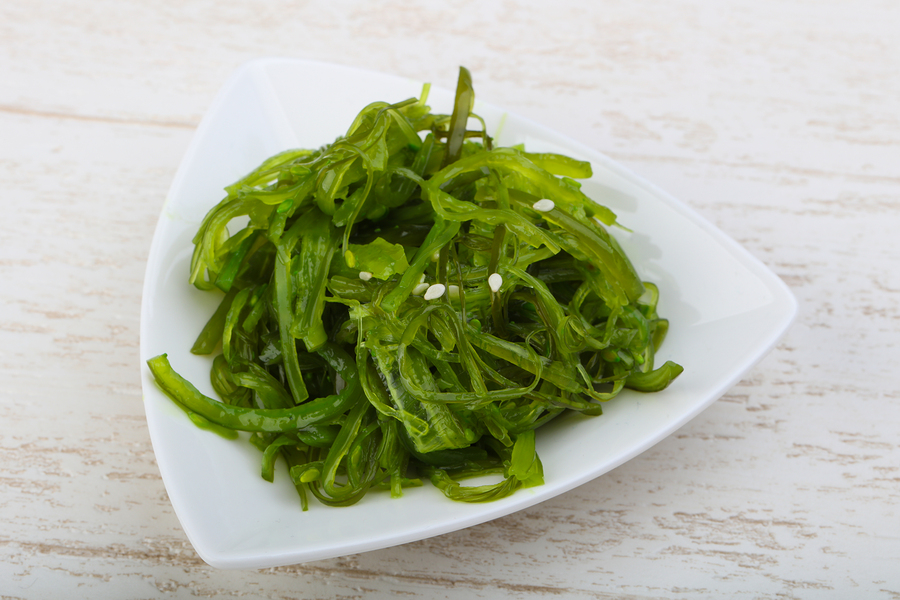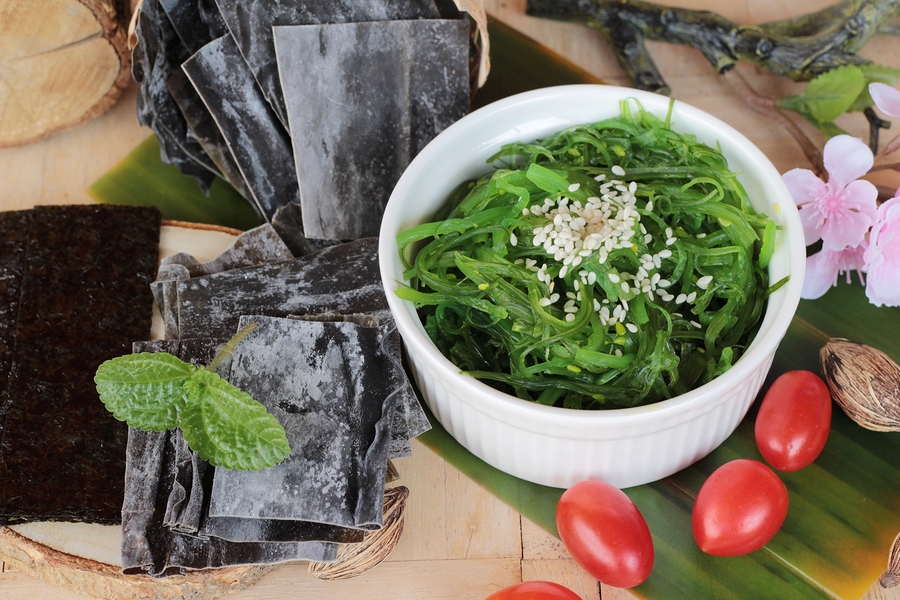- Make It Yourself Lavender Heart-Shaped Bath Bombs!
- 20 Things You Never Knew About “Down There”
- 12 Best Foods For Those Suffering From Arthritis Pain
- 12 Personal Hygiene Mistakes Almost Everyone Makes (Mom Never Told You About #4!)
- 15 Medicinal Plants And Herbs From The Cherokee People
- 12 Mind-Blowing Benefits Of Drinking Coconut Water During Pregnancy
- 12 Outstanding Winter Foods That Won’t Fatten You Up Like A Christmas Turkey
This Can Be Your New Superfood On The Block! (Benefit #3 Makes It the Best!)

Photo credit: bigstock.com
When most people think of superfoods, things like blueberries, kale, or some omega 3-rich fish usually come to mind. But what if we told you that one of the healthiest food items in the world is something many people would never consider eating?
We’re talking about seaweed. Yes, it’s true! You can actually eat seaweed. In fact, people in East Asia have been eating seaweed for hundreds of years and have been reaping the multitude of health benefits from it.
Seaweed can be eaten on its own like in a salad, or used as part of a larger dish. In Japan, where seaweed is used in many dishes, people have unusually low levels of diseases which are common in other developed countries. If you’ve ever had sushi, you’ve already eaten seaweed. It is the green wrapping around the rice and other ingredients.
There are several different types of edible seaweed, each with varying degrees of nutritional value and health benefits. They are often differentiated by color, but this is an imperfect way to do it, because even within these divisions there can be multiple varieties. “Brown” seaweed varieties include kelp and wakame, and are some of the most common styles of edible seaweed. Nori seaweed is a “red” variety. This is the type of seaweed that is used to prepare sushi.
Seaweed is often simply used as an additive in other dishes, with only a tablespoon or so adding a unique flavor and nutritional punch. In this form, it is used as dried flakes which are shaken onto the food like salt. You can also take seaweed supplements in gel capsule form which may be the most efficient way to gain the nutritional benefits of this increasingly popular food. Keep reading to find out the plentiful benefits of seaweed that the Japanese have known for centuries!
1. Seaweed is very low in calories
Seriously, it barely adds any caloric mass to your dish, and it certainly won’t show up on your waistline after the fact. One particular type of seaweed called wakame contains a pigment called fucoxanthin, which helps the body to burn excess fat, and also helps fight insulin resistance, which is certainly welcome news for those living with diabetes, or who are at risk of developing it.
Continue to Page 2

Photo credit: bigstock.com
2. Balanced vitamin and mineral profile
Seaweed contains a good blend of vitamins A, C and E, as well as B vitamins. It also offers minerals like potassium, calcium, and magnesium. While it does offer a nice selection of nutritional elements, it is important to keep in mind that a typical serving of seaweed is pretty small, equivalent to about two tablespoons, so you’re not getting that much. Just think of these nutrients as a great bonus.
3. Iodine
This might be the number one benefit of eating more seaweed. It is one of the richest natural sources of iodine in the world. This is a very important mineral which millions of people around the world are deficient in without even realizing it. Maintaining the right iodine levels in your body is absolutely essential for keeping your thyroid gland healthy. This large gland located in the base of the throat is part of your endocrine system, and produces and regulates levels of hormones found throughout your body. If you’re not getting enough iodine, your thyroid can’t function properly, and your hormone levels will go haywire, contributing to all manners of health problems.
Your body cannot synthesize iodine on its own, you can only get it through your diet. Thyroid problems often produce subtle and confusing symptoms which can be misdiagnosed or go undetected for years. The best way to avoid this problem is to make sure you’re getting enough iodine, and one of the best ways to do that is by eating seaweed.
READ ALSO: Seaweed: An Ocean Superfood For Better Health Video
Overall, seaweed can make a refreshing, delicious and nutritious addition to a healthy diet. Pick some up today and experiment with different recipes! Seaweed’s versatility is part of what makes it such a fun and unique food. Try it and learn what the Japanese have known for centuries. Seaweed is a true superfood!
References:


































Marge Mullen
Dec 5, 2016 at 8:19 am
Years ago this would have been a great idea, but since our oceans and rivers are polluted I will pass!!